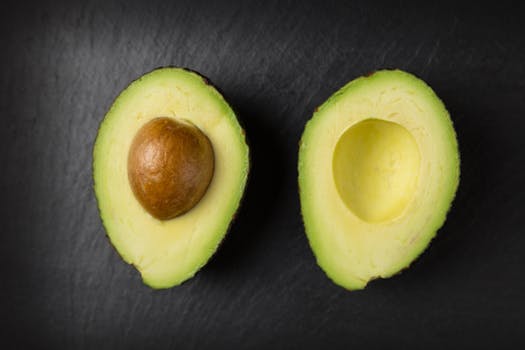Avocados – Nature’s Superfood

Did you know that the avocado is a fruit?
Nutritional benefits of avocado
Aside from providing healthy fats, avocados give you close to 20 essential nutrients, such as potassium, which helps balance your vitally important potassium to sodium ratio.
Monounsaturated fats
have been shown to reverse insulin resistance and regulate blood sugar levels. Monounsaturdated fats are the main dietary fat found in Mediterranean diet which has been long recognized to protect against cardiovascular disease, stroke and several other disease processes.
Carotenoids
Avocados contain oleic acid, a monounsaturated fat that can improve memory and brain activity. (3) Oleic acid in turn helps the body with carotenoid absorption. Carotenoids are chemical compounds that give certain fruits and vegetables their bright yellow, orange or red color. Beta-carotene is one of the most common carotenoids. Carotenoid benefits include lowering inflammation, promoting healthy growth and development, and boosting immunity, among others.
Nutrients found in avocados
Vitamins
Avocado contains both water-soluble and fat-soluble vitamins. Fat-soluble vitamins work together with essential minerals to benefit metabolic processes such as thyroid function. The water-soluble vitamins are those that are not stored in your body, so they be must consumed every day. Avocados are one of the better ways to get these nutrients in.
Minerals
Avocados are a great source of trace minerals, such as magnesium, potassium, iron, and copper. In fact, avocado contains twice as much potassium as two bananas, making it a great was to treat low potassium.
Fiber
Avocado contains more soluble fiber than most foods. Fiber helps to stabilize blood sugar and helps to regulate bowel movements.
Protein & carbohydrates
This amazing fruit is actually high in protein and low in sugar. Vegetarian bodybuilders have known for years that avocado is a great food to eat to help build lean muscle and burn fat.
Antioxidants
Avocados are good for the eyes because they contain antioxidant phytochemicals, which prevent oxidative damage (free radicals) that can change DNA and cellular mutations.
Folate
Also rich in folate, avocados can be consumed daily to help prevent certain birth defects like spina bifida and neural tube defects. Some research has shown that folate-rich foods can also help prevent strokes.
Anti-inflammatory
Phytonutrients is a fancy word for anti-inflammatory compounds found in foods. These are important to help reduce the risk of inflammatory and degenerative disorders that can affect every part of the body — including joints, the heart, brain, internal organ systems, skin and connective tissue.
How to use an Avocado in recipes
Even though avocado is classfied as a fruit, it’s creamy flavor goes very well with savory foods. You can eat it plain, with a little bit of salt. Or you can cut it up into cubes or slices and it to salads. is a very versatile fruit. Its creamy flavor goes well with many foods, making it a refreshing and nutritious addition to various recipes, like sandwiches, smoothies, and even dips.

